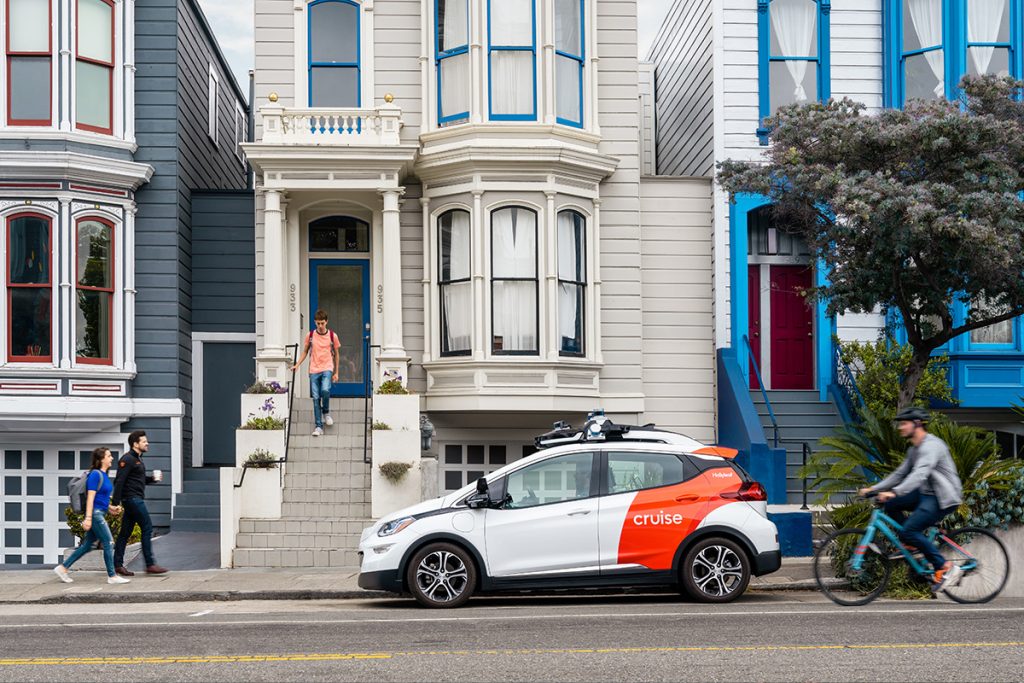
GM’s subsidiary Cruise and Google’s sibling company Waymo are the first companies to receive permits to charge passengers for autonomous taxi rides in California, the state announced on September 30.
Unlike autonomous testing permits, which limit what a manufacturer can receive from the public while testing driverless cars on public roads, the autonomous deployment permits that California’s Department of Motor Vehicles (DMV) has issued to Cruise and Waymo allow the companies to charge a fee and receive compensation for its driverless technology outside a testing program. Both companies still need approval from the California Public Utilities Commission before they can offer these commercial services.
Founded in 2013, San Francisco-based Cruise was acquired by General Motors in 2016. Cruise is now authorized to use a fleet of light-duty autonomous vehicles for commercial services on surface streets within designated parts of San Francisco. The vehicles are approved to operate on public roads between 10 p.m. and 6 a.m. at a maximum speed limit of 30 miles per hour and can operate in light rain and light fog. Cruise has had California’s permission to test autonomous vehicles on public roads with a safety driver since 2015 and the authority to test autonomous vehicles without a driver since October 2020.
Waymo, the autonomous driving subsidiary of Alphabet, Google’s parent company, is now authorized to use a fleet of light-duty autonomous vehicles for commercial services within parts of San Francisco and San Mateo counties. The vehicles are approved to operate on public roads with a speed limit of no more than 65 miles per hour and can also operate in rain and light fog. Waymo has had state authority to test autonomous vehicles on public roads with a safety driver since 2014 and received a driverless testing permit in October 2018.
These are the second and third deployment permits the California DMV has issued. The first was to driverless delivery service Nuro in December, whose permit allowed the delivery of goods, not passengers.

